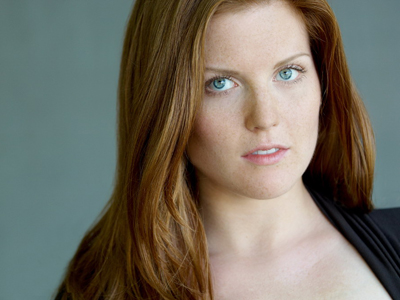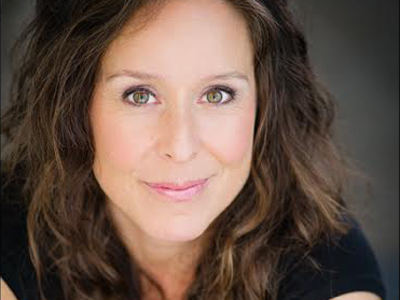Blog
Two actors, two generations
In À toi, pour toujours, ta Marie-Lou by Michel Tremblay, Julie Trépanier plays Carmen and France Perras plays Marie-Lou. With just a few days before opening night, we asked the two actors how they respectivaly see each of their characters.
[two_column][/two_column][two_column_last][/two_column_last]
[two_column]
JULIE TRÉPANIER
Théâtre la Seizième! From 2005 to 2010 I lived in Vancouver. A month after I graduated, I came back to visit my best friend who was celebrating her birthday. Craig contacted me and we had coffee together. The next day I was auditioning for him! I read a few excerpts of scripts in French and in English. I remember really loving the atmosphere in the room, but I was sure that I wouldn’t get the part. When Craig called me to offer me the role of Sophie in Strawberries in January, I was surprised, but mostly ecstatic!
Why did you decide to pursue a career as an actor?I decided to pursue this career when I was very young. At primary school, two of my teachers had written a play as part of our history class. The play spoke about the major events of the 20th century. All the girls in the class wanted to play Anne Franck. There were auditions and I’m the one who got the part. It was a very nice experience. I was fascinated by the idea that by acting, you could be a thousand different people, live a thousand lives. It spoke to my curiosity and to my hunger for life. Today, I now see theatre as a way to take a pause, to get far from the incessant buzzing of everyday life, and talk directly to people, straight to their hearts. It is a framework that allows us to say things that can’t be said in other ways. It is a very humanistic form of art.
As a young actress, what are the challenges you face and what are the advantages?In theatre, there aren’t a lot of roles for young women and there are very many well trained actresses. It’s different in movies and television. There are plenty of roles there, but the competition is very fierce! Beyond that reality, my biggest challenge is to determine my priorities as an artist. Should I invest deeply in theatre, try to get into film, create new work or do a little bit of everything? There are numerous avenues and I have to find the confidence to follow my dreams without being influenced by others.
Talk about your character, Carmen.
Carmen is a terrific character and an icon of Quebecois theatre. She is a recurring character in Tremblay’s work and appears in a number of his plays. In 1971, when À toi pour toujours, ta Marie-Lou was performed for the first time, Carmen represented the change and the self-affirmation that was beginning to come out in Quebecois culture. Carmen is the only character who sees the situation with lucidity and who decides to liberate herself, to find happiness. She is more modern, closer to us. As an actor, I have a lot of fun playing her because she is a passionate woman, a woman with a lot of heart. I find her inspiring, but she is far from perfect.
Carmen has broken off from the past and is the only character to escape the “great darkness.” How is that shown on stage?
First it is with her hairstyle and her costume. She is a country singer and her style is pretty flamboyant! Also, Carmen is always in movement throughout the play. She moves around while the others are very static. Her modernity is also seen through her ideas. She is sexually liberated and is pursuing her dream to be a singer. She is always in action, from all points of view.
Since you trained in English, is it a challenge for you to perform in French?
Surprisingly, no! Since I had never performed in French before Strawberries in January, I was worried about switching languages before rehearsals began. I discovered however, to the contrary, I am more connected to my emotions when I act in my maternal language, French. I find more colours! It’s even easier with À toi pour toujours, ta Marie-Lou. The script is written in “joual”, so it’s very close to colloquial French. The pronunciation is more fluid, because it is part of the aesthetics of the script.
You’re sharing the stage with two more experienced actors. Is this an opportunity to learn from them?
Rehearsing is always an opportunity to learn from others. I get inspired by other actors’ processes, their tricks and their energy too. With Joey and France in particular, what impresses me the most is how they have managed to live their artistic careers in a balanced way, inspired, and close to their needs and their personalities. I find that very encouraging!Rehearsing is always an opportunity to learn from others. I get inspired by other actors’ processes, their tricks and their energy too. With Joey and France in particular, what impresses me the most is how they have managed to live their artistic careers in a balanced way, inspired, and close to their needs and their personalities. I find that very encouraging!
What character do you dream of playing some day?
On stage, I dream of playing Satine in the Broadway adaptation of Moulin Rouge, an adaptation that has yet to be created! On screen, I would love to play Gabrielle or Adélaïde in an adaptation of the trilogy Le gout du bonheur by Marie Laberge, another project that has yet to be created…
[/two_column]
[two_column_last]
FRANCE PERRAS
You studied in Ottawa. Why did you choose to pursue your career in Vancouver?
I was attracted by the film and television industry which was very vibrant at the time. It was the time when many Hollywood productions were being produced in Vancouver. I was 22 years old and very cocky. I knocked on the doors of all the big agencies to ask them to take me on as a client! In the end, I worked on film sets, which allowed me to learn how the industry worked. I then discovered Théâtre la Seizième from an ad in the newspaper. Alain Jean, who was the Artistic Director at the time, auditioned me. I was hired to play in Grande Ourse, with Joey Lespérance in fact. They are such nice memories! I feel lucky to have met many people who have encouraged me to pursue my artistic career.
You split your time between voice work, theatre, television, film and your theatre company BoucheWHACKED! Are these different pursuits complimentary?
Yes, in fact. All these experiences come together and make me a more versatile artist with more than one trick up my sleeve. At the beginning, I did a lot of different work to survive in this career. Today, I see it as an extraordinary opportunity. I have a work life that is tailored to me, that allows me to meet many people, to experiment and to continue learning. It fills my need for constant action, discovery and socialization.
You now have more than 20 years of an acting career behind you. What does that maturity bring you on a professional level?
Today, I have the necessary confidence to do my job with a certain serenity. I no longer need encouragement, I have confidence in my abilities and in the life I have created. I would never go back 20 years. At 40, I know my strengths, my weaknesses and what I like and what I don’t like.
Talk about your character, Marie-Lou. What do you like about her?
Marie-Lou is a proud woman, strong, but mostly deeply hurt. Like many Quebecois women at the time, she is unsatisfied with being a homemaker, but she doesn’t have the power to change her destiny. All this powerlessness has transformed itself over the years, into pain and resentment. She is a very emotionally and psychologically complex character.
Playing Marie-Lou, is like playing Blanche Dubois in A Streetcar Named Desire. It is a major role in the theatrical canon. I have to say this is the most difficult role I’ve played in my career up to now. I’m happy to have 20 years of professional experience behind me to take on this challenge.
They say that À toi, pour toujours, ta Marie-Lou is a theatrical masterpiece. Why in your opinion?
It is a very beautiful script, with great depth and complexity. Michel Tremblay wrote this play as sort of a symphony for 4 instruments. Each character has his score and interacts directly or indirectly with the other characters’ scores. There is an incredible musicality in the choice of words, in the way the characters’ lines echo with each other. It is an enormous challenge for the artists who take on this piece.
The script by Michel Tremblay is written with a lot of back and forth between the past and the present. The conversation between Léopold and Marie-Lou, in 1961 is constantly intercut with the conversation of their daughters, Manon and Carmen, in 1971. How do you manage these jumps in time?
With extreme concentration! Acting requires a high level of concentration, but here we have a script that is more challenging than usual. We worked on our roles as four monologues, that are intercut. It requires good listening skills and at the same time, great introspection.
You’re sharing the stage with two young actors, and someone you know very well, Joey. How do they inspire you?
Acting with Joey is like putting on an old pair of slippers! We have often performed together, every kind of role that you can imagine. Complicity with him is instantaneous. The two young women, Julie Trepanier and Siona Gareau-Brennan, are incredible. They are very inspiring in the way they work, in their dedication, and in their innocence too. They are extraordinary scene partners. Watching them brings me back, because I have played Manon or Carmen many times.
What character do you dream about playing someday?
I would love to play the title role in Euripide’s Médée, a Greek tragedy with characters that are bigger than nature. If it doesn’t happen, I still consider myself lucky to have had the opportunity to play so many characters in my career, strong women, damaged and ambitious women. Among other roles, I’ll have the chance to play the woman in the English version of La liste, by Jennifer Tremblay this winter, a magnificent role that fascinates and touches me deeply.
[/two_column_last]


